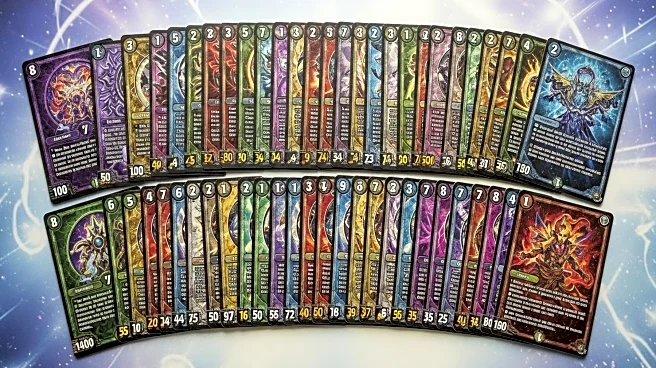What's Happening?
Pokémon and Magic: The Gathering, two popular trading card games, are experiencing unprecedented demand, leading to frequent sellouts of new products. Despite this surge in popularity, both companies are reportedly not increasing production to meet demand, instead capitalizing on scarcity to drive short-term profits. This strategy has resulted in a booming secondhand market, where collectors pay high prices for rare cards. However, this focus on scarcity may alienate regular players, particularly younger ones, who struggle to access the cards needed to play the games. The situation is exacerbated by the introduction of extremely rare cards and expansion sets, which attract collectors but limit availability for players.
Why It's Important?
The scarcity-driven approach by Pokémon and Magic: The Gathering could have long-term implications for the trading card game industry. By prioritizing collectors over players, these companies risk losing a generation of new players who cannot afford or access the necessary cards. This could lead to a decline in interest and participation in the games, affecting future sales and the overall health of the industry. The current strategy may boost short-term profits, but it could undermine the sustainability of the games by cutting off the pipeline of young players who traditionally grow into adult collectors and enthusiasts.
What's Next?
If the current trend continues, both Pokémon and Magic: The Gathering may face declining interest from new players, potentially impacting their long-term viability. Companies might need to reconsider their production strategies to balance collector interest with player accessibility. Stakeholders, including retailers and gaming communities, may push for changes to ensure the games remain inclusive and accessible. Additionally, there could be increased pressure on these companies to address the scarcity issue and make the games more accessible to a broader audience.
Beyond the Headlines
The scarcity strategy raises ethical questions about the responsibility of companies to their consumer base, particularly young players. It also highlights the cultural impact of trading card games as a social activity that fosters community and inclusion. The current approach may shift the focus from playing to collecting, altering the cultural significance of these games.










